India and the World : Political Turmoil in Sri Lanka: Democracy in Peril?
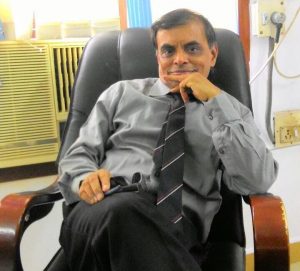
Baskaran Krishnamurthy
India – Tamil – Sri Lanka.
A classic example of how not to handle an issue is of course the legitimate demand of the Tamils in Sri Lanka for equal rights at par with their fellow Sinhala brothers. Both parties of the confrontation – Sri Lankan government and the Tamil leaders – made a mess of the whole issue thereby making it one of the poorly managed ethnic conflicts in the world.
What should have been an internal issue was so over blown that the International Organizations are till date left puzzled – not knowing how to go about solving the problem. Add to the confusion, the insensitive, insensible politicians of Tamil Nadu. As late as the date this chapter is written – 2018 November 11 – these men of ignorance keep issuing all sorts of irrelevant statements. A politician has gone to the extent of seeking a ‘referendum’ in Tamil Nadu, India for a free Tamil State in Sri Lanka!
There indeed was no problem at all till 1944 when an attempt was made to make Sinhala the official language in place of English. The Tamils perhaps had an apprehension that Tamil was being relegated from its position of prominence.
It would have been more prudent if the Sri Lankan leaders had taken an acceptable stand towards Tamil. They would have done a great service for the unity of their nation if they had treated Tamil at par with Sinhala.
The funniest part of these ‘fights’ for the cause of their mother language is that these people never once object to the widespread use of English. But they revolt and come to the streets when a language of their own Land is given its due share! ‘If it is not mine; it should not be yours too’! Let it be English or Spanish or French or German or anything else. We do not bother much. What a ridiculous stand!
We do not understand the utter foolishness of the petty narrow minded political hooligans who do everything to divide the society for their personal gains. A language can never be an enemy to another; it is the ‘perpetrators’ or the vested interests who destroy the nuances of the Language which can only expand the horizons of a society.
The ‘fighters’ have never been able to do anything good to their own mother language; have done nothing to promote or strengthen their own race; have been notoriously trying to exploit the emotions and sentiments thereby exposing the innocent public to great risks and dangers.
During the past half a century or so, both the Sinhalese and Tamil supporters have proved their inability to be caring and responsible towards their own people – the ultimate sufferers, who lost so much getting nothing in return.
The leaders all over should clearly understand that anything that unites people is good and anything that breeds enmity among them is bad. Similarly, there is no language that teaches bad as there is none that imparts nothing but good. It just cannot be. It is all in the hands, in the acts, in the minds of the people using it.
It is neither the statues nor the statutes that can promote a language. The ability to adapt to the needs of the Time is what is most important for any language to flourish. But this is the last in the agenda of the hawkish ‘leaders’ who are out to destroy the social, political fabric creating a permanent rift to safeguard their own interests.
Sri Lanka sailed smoothly so long as it was Ceylon; so long as they had English at the centre stage. But if it was to be the language of the Land – Sinhala – people see danger in it as an attempt to overthrow another language, again of the same land – more or less! (‘Ceylon’ gave way to ‘Sri Lanka’ on 22nd May 1972)
The struggle against the colonial rule of the British was always a political one and it never had any other dimension like ‘English vs Local language’! It gives a strange feel when native languages are pitted against one another when the alien, colonial language is unanimously given the seat of throne.
The very same people who did not utter a word against the foreign language are now agitated over their sister language taking over. How could it be? Whose fault is it anyway? Both the Sinhalese and the Tamils should take responsibility for the sorry state of affairs that is prevailing today.
Conferring official status to Tamil along with Sinhala would have been such a beautiful idea that would have set the whole nation on a different voyage altogether. It would have paved way for natural interaction between the Sinhalese and Tamils making the citizens well blended and fully united.
Who then masterminded the theory of ‘Sinhala’ over ‘Tamil’? Who allowed the chauvinists to have a field day and pushed the country to a ‘Civil War’ which was very much avoidable?
A wild fire, if not to be allowed to spread, has to be put off at the very onset of it. To nip in the bud is always easier. But this was never tried in Sri Lanka because the very same people in charge of maintaining national unity worked overtime to thwart and sabotage any honest attempt at restoring faith among the already wounded people. In fact the fire was deliberately fanned out to take larger dimensions and disproportionate forms.
Sri Lanka attained Independence on 4th February 1948 and within 8 months from then, on 15h November 1948, ‘Ceylon Citizenship Act’ was passed by the Ceylon Parliament. It unambiguously placed the Sinhalese populace over the Tamils in all matters of citizenship. The Act speaks of two different kinds of citizens – ‘citizen by descent’ and ‘citizen by registration’.
Part II Sec 4(1) of the Citizenship Act says – ‘a person born in Sri Lanka before the appointed date (15 Nov 1948) shall have the status of Sri Lanka if a) his father was born in Sri Lanka or b) his paternal grandfather and paternal great grandfather were born in Sri Lanka’.
This means that to be a citizen by descent, we may deem it as ‘natural’ citizen, his father or grandfather or great grandfather should have been born in Sri Lanka too. The babies of the migrants were thus kept out of this criterion though they were born in Sri Lanka. He should have been a second if not third generation baby of the land to have the status of a citizen by descent.
To become a citizen by registration, the Act stipulates certain special residential qualifications – of ‘uninterrupted residence in Ceylon’ of 10 years for the unmarried and 7 years for married persons – u/s 3(2)(a) and 3(2)(b)of the Act.
Sec 5 of the Act prescribed the time limit ‘of two years reckoned from the appointed date’ to exercise ‘the privilege or extended privilege’ conferred by this Act.
Sec 4 of the Act however takes into account the occasional absence for a period not exceeding 12 months on any one occasion during the period in contention. This condition was same to both Indian and Pakistani migrants.
It looked reasonable; but in reality when the rule was applied, many thousands left stranded since the condition of ‘uninterrupted residence’ could not be complied with. Close to 8 lakh people of Indian origin were to become stateless because of the Citizenship Act.
In order to provide relief to the affected migrants, on 5th August 1949, ‘India and Pakistani Residents (Citizenship) Act’ was passed. It was said to be ‘an Act to make provision for granting the status of a citizen of Ceylon by registration to Indians and Pakistanis who have the qualification of past Residence in Ceylon for a certain minimum period’. But it failed to be beneficial since it did not offer much as a ‘relief’ from the conditions of the Citizenship Act.
On 30 October 1964 lal Bhadur Shastri and Sirimao Bhandaranaike signed a Pact by which India agreed to repatriate over 5 lakh migrants from Ceylon; over 3 lakh were to become citizens of Ceylon and the status of around 1.5 lakhs remained undecided.
On 28 June 1974, Smt Indira Gandhi and Sirimavo Bhandaranaike reached a Pact giving Sri Lankan citizenship to the remaining 1.5 lakhs.
Finally in 1988, the Sri Lankan Parliament granted citizenship to all those who had not otherwise applied for Indian citizenship. With this the issue of citizenship was resolved. The settlement did not rise any resentment in either block and it culminated in ‘Grant of citizenship to Persons of Indian Origin’ through the Act no 35 of Oct 7, 2003. It granted citizenship to all Indian Tamils who were residents of Ceylon from October 1964 and to their descendents too.
What was to be the most difficult phase was over and a peaceful settlement of the citizenship issue should have in fact led to more cordial relations between India and Sri Lanka. But it was not really so.
During the phase of the talks between 1948 and 1974, many thousand Tamils were deported out of Ceylon. It was a well calculated, pre-planned, forced exodus of Tamils out of Ceylon. The powers that be including the Judiciary of the land did nothing to stop this ‘selective discrimination’.
It is still not clear what advantage did Sri Lanka gain by forcibly deporting the faithful citizens of their country. Is it really a cause for treason if the people speak the language of some other land?
Whoever ‘invented’ this theory must have been a monster since the language that they discriminated against is the one that propagates universal brotherhood. It is Tamil that has produced ‘Sanga ilakkiyam’ and ‘ThirukkuRaL’ and has proudly proclaimed that the entire human race is one and that none is ‘bigger’ or ‘smaller’!!
The sinister moves of the hardcore elements culminated in passing the ‘Sinhala only Act’ in 1956. On paper, it replaced English as the official language. But the hidden agenda was too obvious. It was more intended to scuttle the Tamils from occupying public posts and to curtail their rights to be at par with their Sinhala brothers. The divide was near complete and it was none other than the government who ‘sponsored’ it.
The conflict was invented, invited, instigated and institutionalized by the Sinhalese powers. As they desired, as they planned or ‘planted’, the struggle turned out to be an armed conflict. It was not as easy for Sri Lanka as it had its calculated. It proved so disastrous and so devastating that Sri Lanka has not been to redeem itself till date.
Anyway, the ‘war’ has started.
Who will win? Who will lose?
Author – Baskaran Krishnamurthy, Writer, Columnist & Income Tax officer

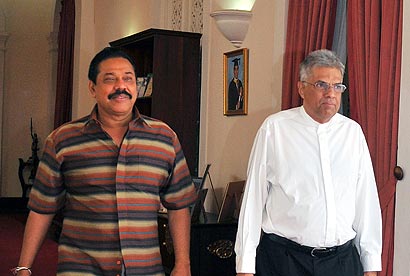








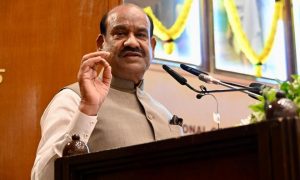

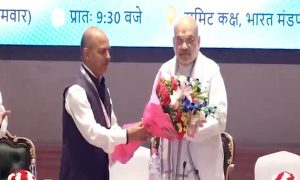

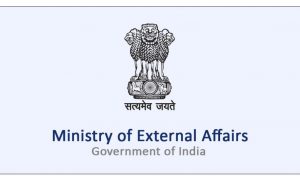

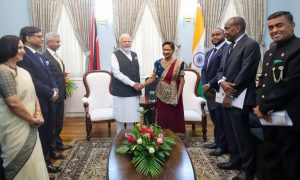

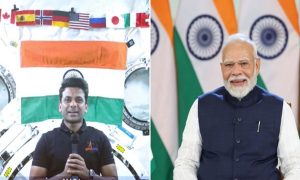

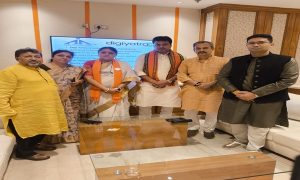

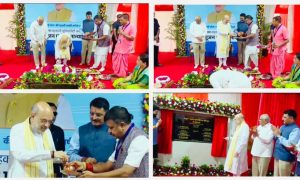



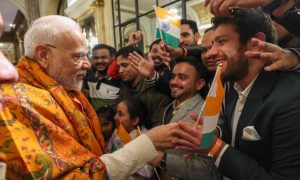

 WhatsApp us
WhatsApp us